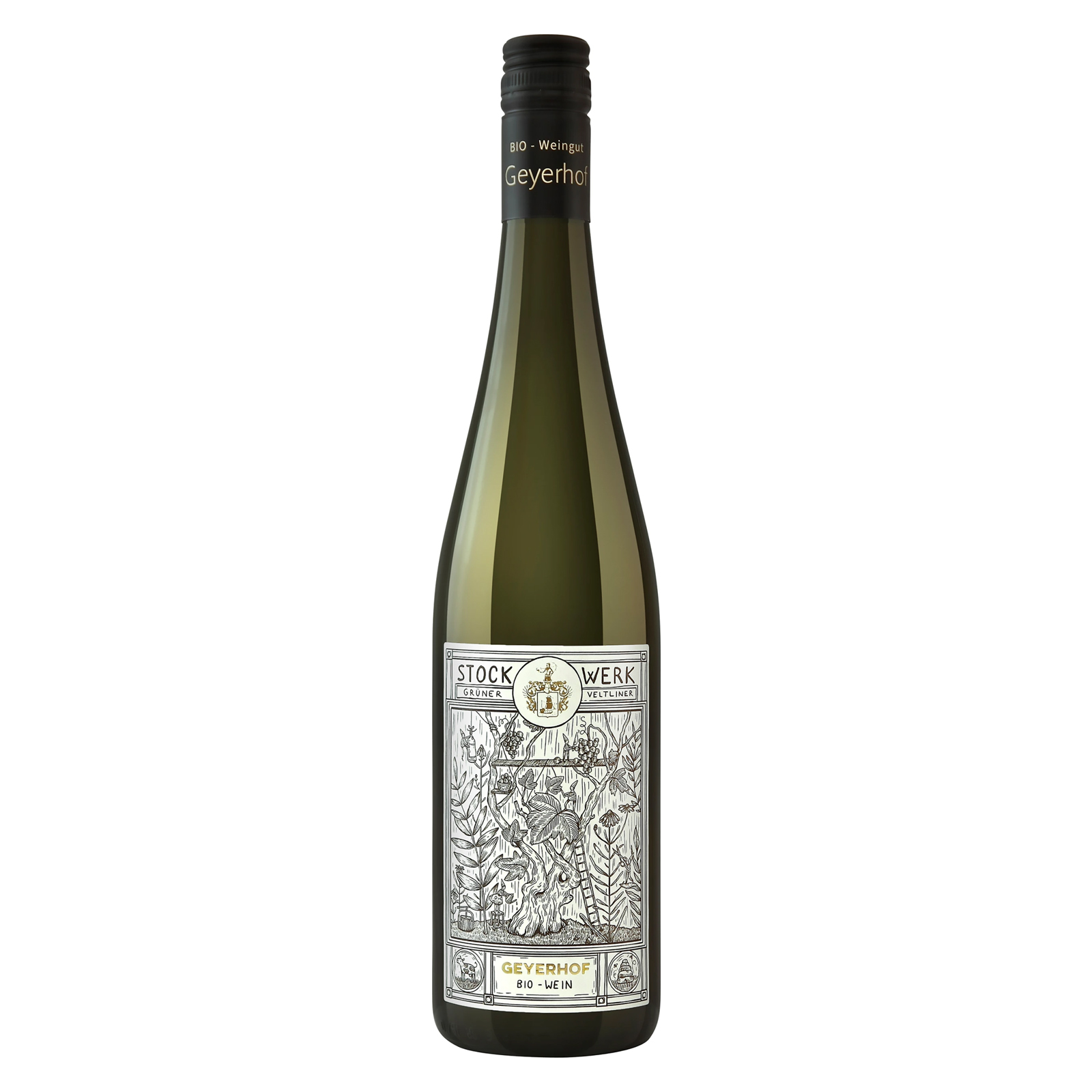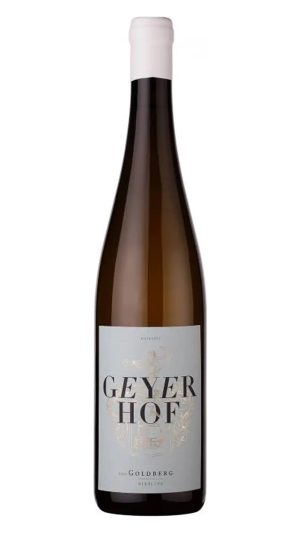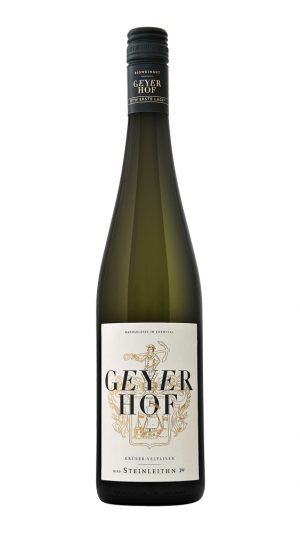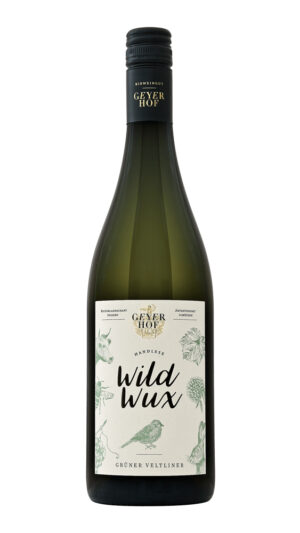Geyerhof Stockwerk Gruner Veltliner 2023 / 2024
Type: White
Country: Austria
Region: Kremstal
Grape Variety: 100% Gruner Veltliner
Alcohol Percentage: 12%
Viticulture: Biodynamic | Certified Organic | Vegan Friendly | Natural Wine
Climate: Continental climate characterised by cold winters, hot dry summers, and often a large diurnal temperature flux with hot days, and cold nights
Terroir: Vineyard grows on a soilbed with deep deposits of loess with a northern exposure
Ageing: Fruit is handpicked and strictly sorted in the vineyard. Healthy clusters are pressed whole, and the must is intentionally oxidized in the press tray resulting in deeper flavors and greater age-ability. Wines are fermented and aged in 3,000 litre temperature-controlled stainless steel tanks. The slow, even fermentation never exceeds 22 °C. A small percentage of white and red wine are aged in neutral oak tanks or barrels. Spontaneous fermentation is preferred, but never at the expense of quality. Malolactic fermentation is avoided in the whites. No other additions are used except for sulfur post-fermentation. Wines remain on the lees until just before gentle filtration and bottling
Color: Gold
Nose: Aromas of peach, pear, lemon zest and apple crumble
Palate: Vibrant and charming. Zesty, generous palate with fine, fresh acidity providing great focus and structure
About the Winery: The history of the old estate began almost 800 years ago, in the little village of Oberfucha in Kremstal, Lower Austria. Here, winemaking has been part of the family’s life for more than 14 generations, an occupation deeply rooted in the landscape. Today, as well as in the past, arable land, hedgerows, cattle, pigs, chickens and bees complete their idea of holistic farming. Vineyards cover 19 hectares in Kremstal with plots in Gaisberg, Golberg, Hoher Rain, Johannisberg, Kirchensteig, Sprinzenberg and Steinleithn. The winery strongly advocates diversity over of monoculture, with the belief that their vines are a smaller part of a larger whole.
The Geyerhof team spends over 5000 hours pruning, trellising and working on the rootstocks and canopies each year. They only hand-harvest with an emphasis on organic viticulture. Only by giving nature a place in and around the vineyard, are they able to receive back the best nature has to offer. Over 13% of their land consist of hedges and nature conservation areas. Diverse cover crops with numerous wild herbs offer an additional habitat for a multitude of useful insects in our vineyards. The ecological interplay renders the use of insecticides unnecessary, reinforces the resilience of the vines and promotes healthy soil life.







